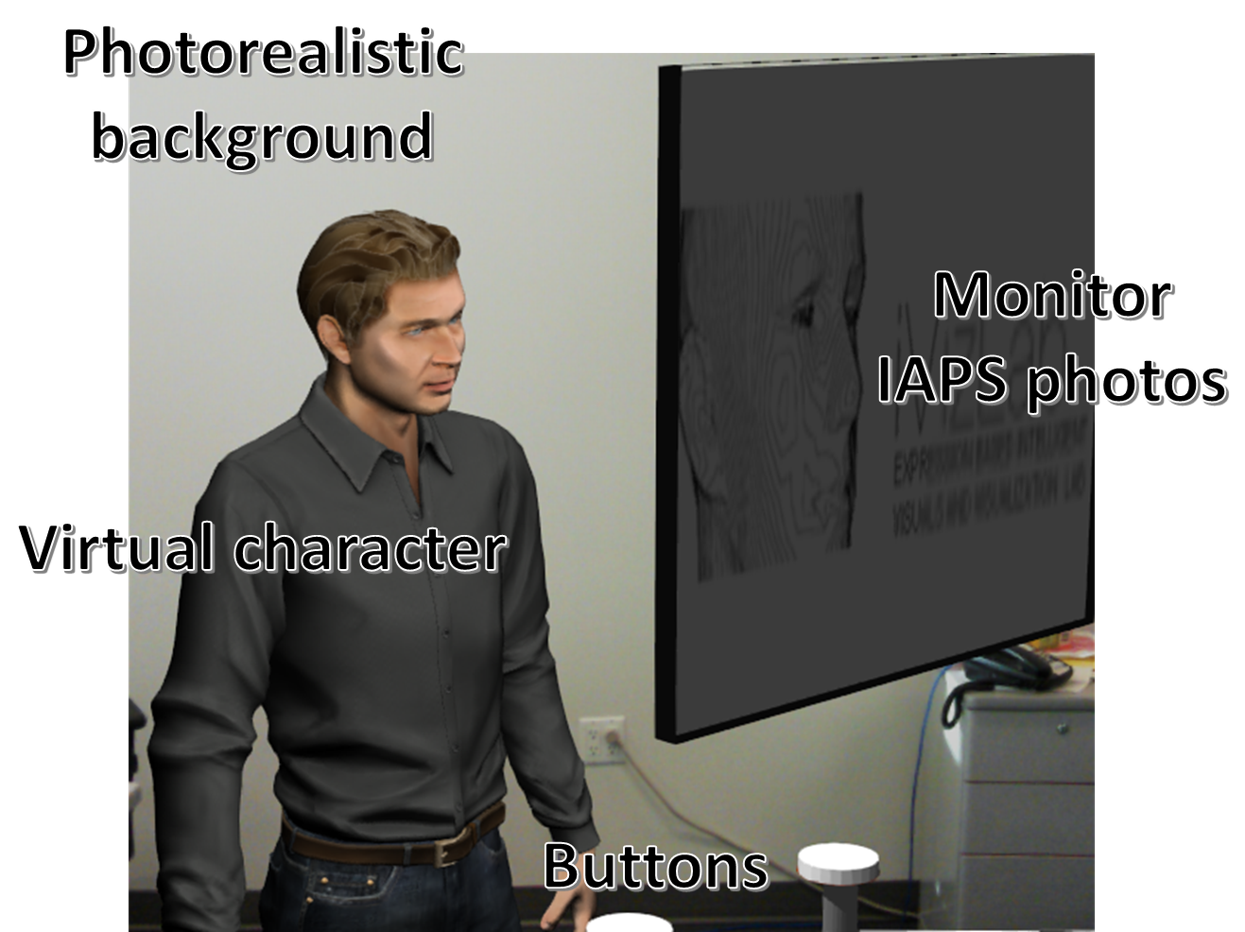Personality as reaction to stimulus in the environment

Inter-individual differences in cognition, emotion, and behaviour are pervasive mediators of social interaction. Higgins and Scholer (2008) suggest that personality is revealed through motivated preferences and biases in the way people interact with their environment. We investigate personality attribution using a paradigm where a human participant is tasked with assessing the personality of an autonomous virtual humans responding to affective stimuli. We evoke different impressions of personality by varying the characteristics of the mapping between affective quality of the stimulus and overt behavioral response of the AVC. The characteristics of the mapping draws upon prior empirical evidence and the BIS/BAS model of personality (Carver and White, 1994). We present first results of an implementation using the SmartBody character animation platform (Thiebaux et al, 2008). Our work illustrates how autonomous virtual characters can be used as a platform to develop models of human cognition, affect, and behavior.
